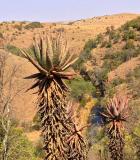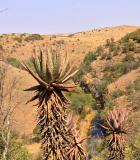Resilience in the Limpopo Basin Program (RESILIM)
From June 2012 to December 2017, the USAID-funded Resilience in the Limpopo Basin Program (RESILIM) contributed to significant advances in water management, biodiversity, and climate change adaptation across an area of Southern Africa as large as Sweden that is home to 18 million people. Through strategic interventions that helped build evidence for decision-making, strengthened institutions, raised key influencer and public awareness, and demonstrated scalable projects, RESILIM catalyzed progress on governance, policy, science, and community resilience, achieving measurable gains that will continue long after the program closes.
Activity Description
The goal of RESILIM, a five-year contract funded and administered by USAID/Southern Africa, was to improve transboundary management of the Limpopo River Basin and enhance the resilience of its people and ecosystems. With the support of the four Basin governments — Botswana, Mozambique, South Africa, and Zimbabwe — the program was geared toward collaboration with the Limpopo Watercourse Commission (LIMCOM) on three strategic objectives:
- Reducing climate vulnerability by promoting the adoption of science-based adaptation strategies for integrated transboundary water resource management
- Conserving biodiversity and sustainably managing high-priority ecosystems
- Building the capacity of stakeholders to sustainably manage water and key ecosystems
Consultation, collaboration, and partnership were at the heart of RESILIM’s approach. Established as a consortium led by Chemonics International, the program involved three subcontractors: Global Water Partnership Southern Africa (GWPSA), an NGO; Cape Town-based international environmental consultancy OneWorld Sustainable Investments (OneWorld); and strategic communications specialist Overseas Strategic Consulting.
Actual Outcomes
High-level results include:
- Major advances on policy and governance that fully invested Basin governments in efforts to secure water, protect biodiversity, and adapt to climate change, along with plans and tools to strengthen day-to-day management of these objectives.
- Foundational contributions to the scientific evidence base essential to effective management of water and biodiversity in the Basin, and provision of related decisionmaking tools.
- Significant investments in helping people and communities build resilience through new climate-friendly livelihoods and stronger systems for resolving conflicts and managing competition for resources.





